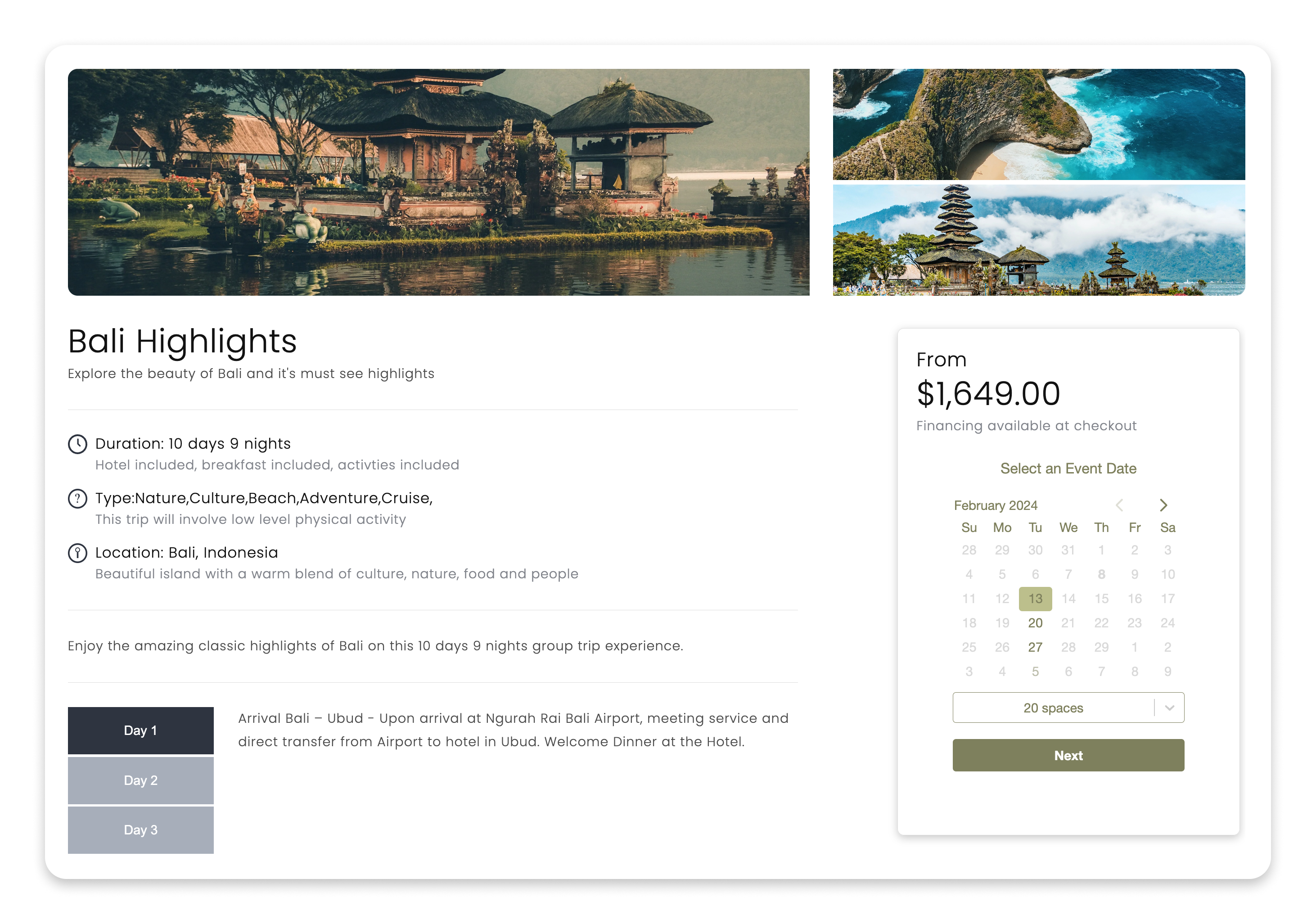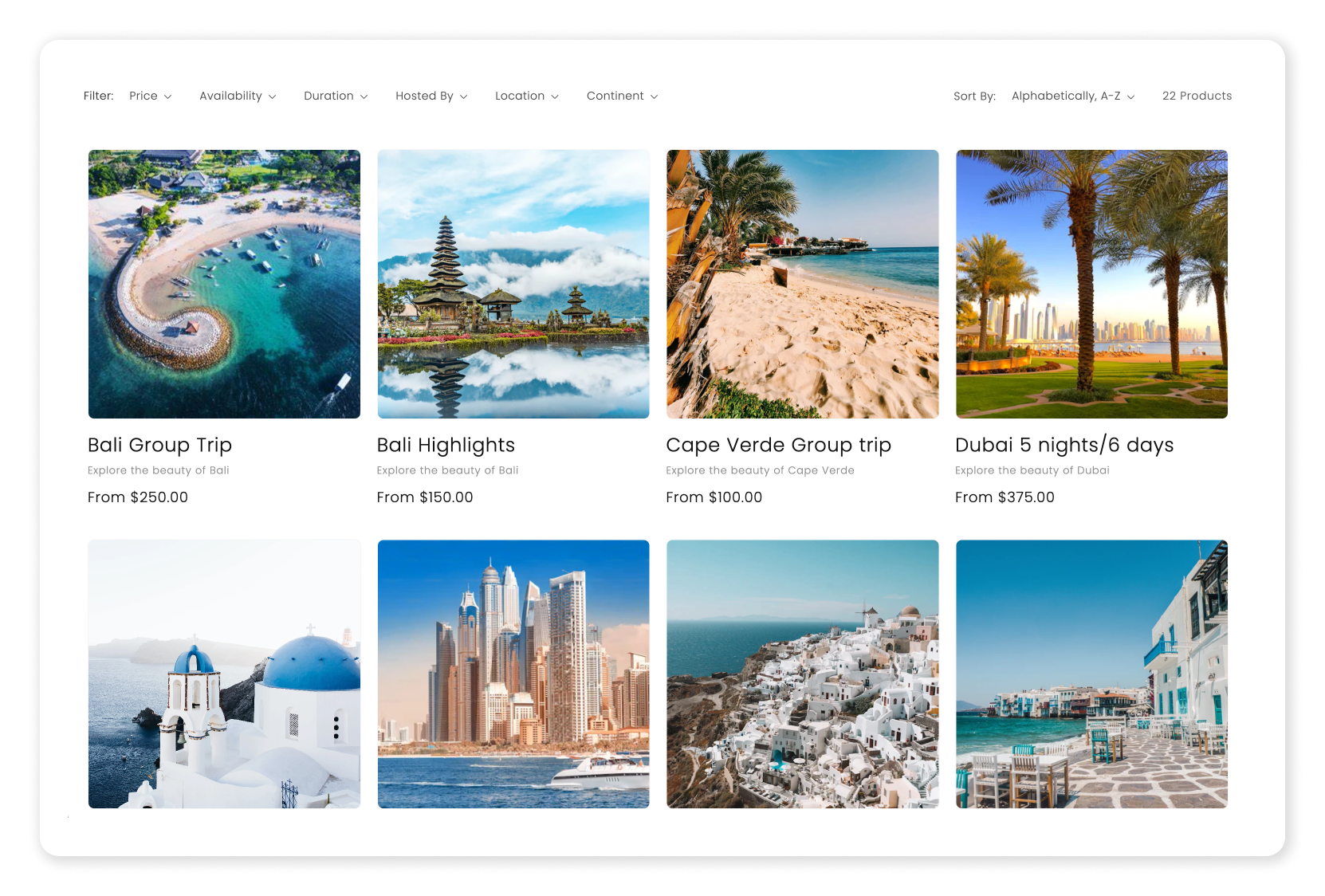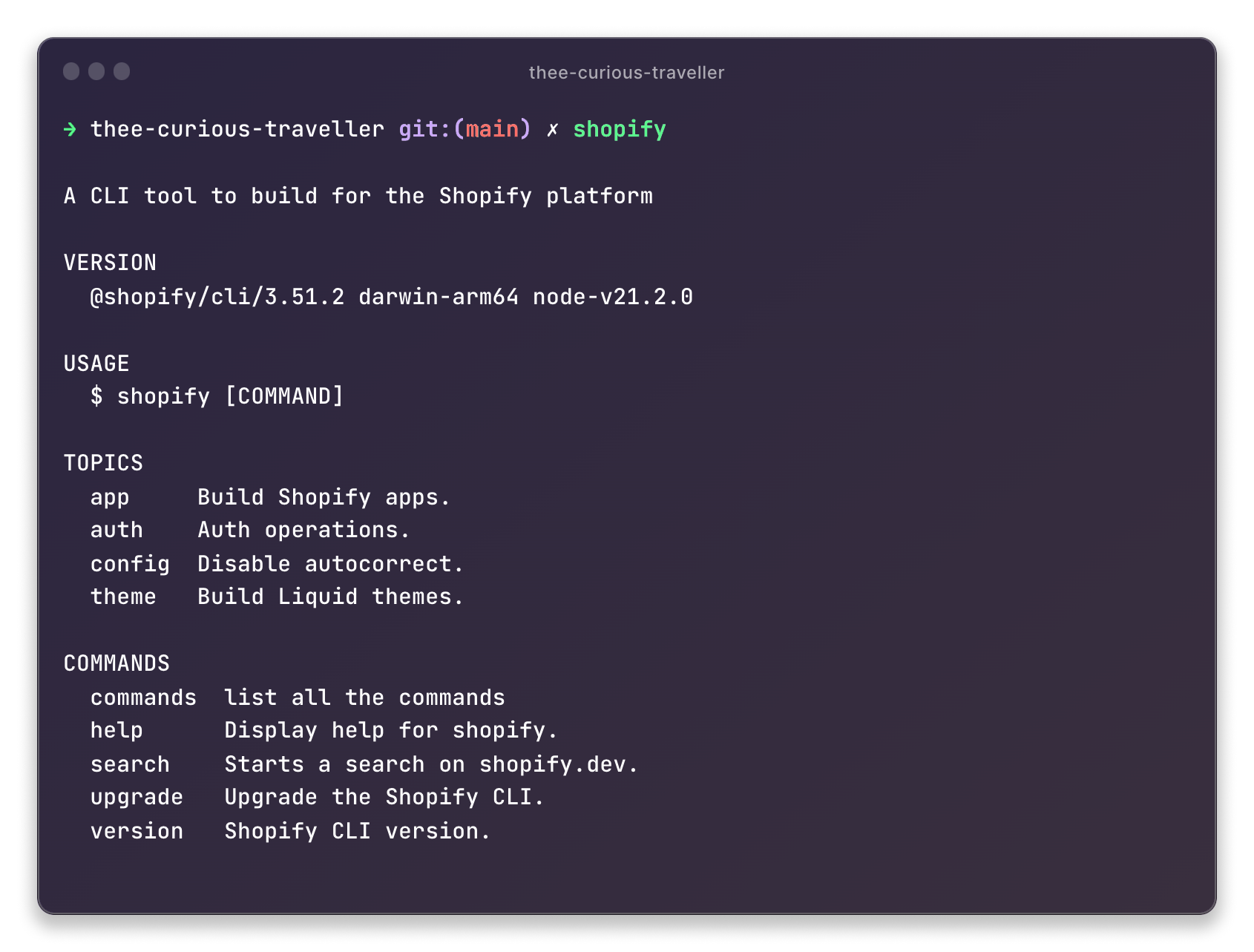Building a Shopify store for a travel agency
When Thee Curious Traveller contacted us, they expressed their need for a quick build time, an improved user experience, simple pleasant designs, with a limited budget. Shopify is our go to solution for that type of projects. After careful research and playing around with a few plugins we were able to design, develop, test and deliver a comprehensive Shopify store in 3 months.
We integrated multiple booking systems, enabling travelers to easily purchase trips and experiences directly through the platform. Additionally, we implemented personalized user profiles, allowing users to save their preferences and check past trips for a more personalized experience. To enhance usability, we simplified navigation, ensuring that visitors could effortlessly explore the curated trips offered by the agency. All in all, we transformed Shopify into a powerful tool for Thee Curious Traveller, streamlining the entire booking process and elevating the user experience to new heights.

Shopify is our holy grail for most e-commerce projects
As a development agency, we find joy and immense value in using Shopify for a myriad of projects, sometimes very different from another. Its battle-tested checkout and inventory system, its default staple theme (Online Store 2.0) its integrations and extensions (Shopify CLI in particular), its templating language (Liquid), its scalability and the size of its ecosystem really set it apart from the competition in our view. From classic online stores to niches with specific business models like travel planning, Shopify remains our preferred platform for crafting impactful e-commerces.

E-commerce complexity and Shopify's well-known constraints
E-commerce projects are often complex, feature-rich and rely on multiple tools working together. Overcomplicating business goals is frequent when clients want to provide very specific shopping experiences. Shopify embraces this philosophy of avoiding 'reinventing the wheel' by providing the same strict set of tools to all its users. And while it is undeniably powerful and versatile, Shopify's approach generates some limitations that we've encountered in our experience as a web agency. One notable aspect is the platform's dependency on third-party apps for certain advanced functionalities, which can lead to additional costs and complexity. Additionally, the level of customization available within Shopify's themes and templates may not always meet the specific design requirements of more complex projects (looking at you, checkout form). But for those who can't compromise with these reasonnable limitations and can budget a custom made UX, there's always Shopify Plus.


